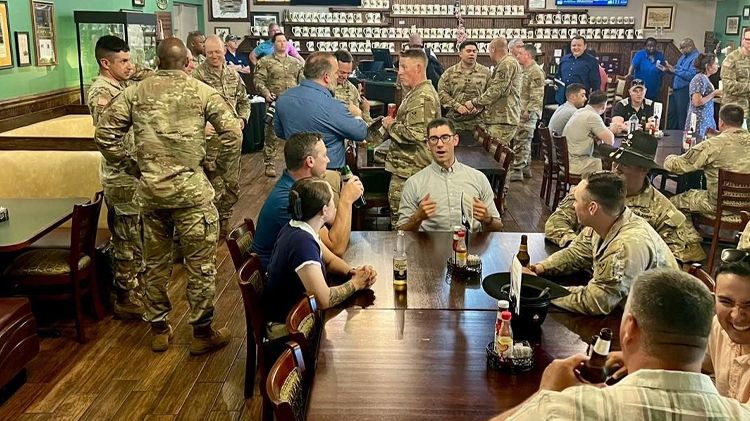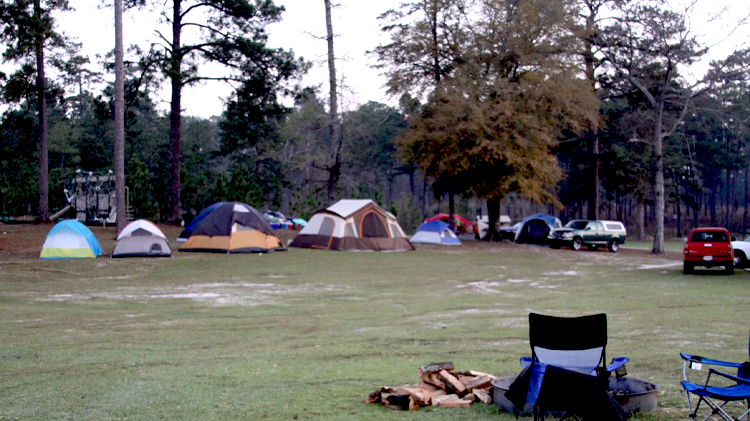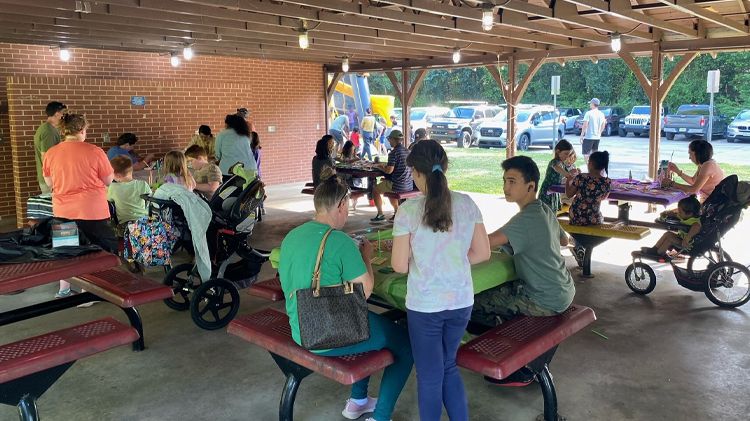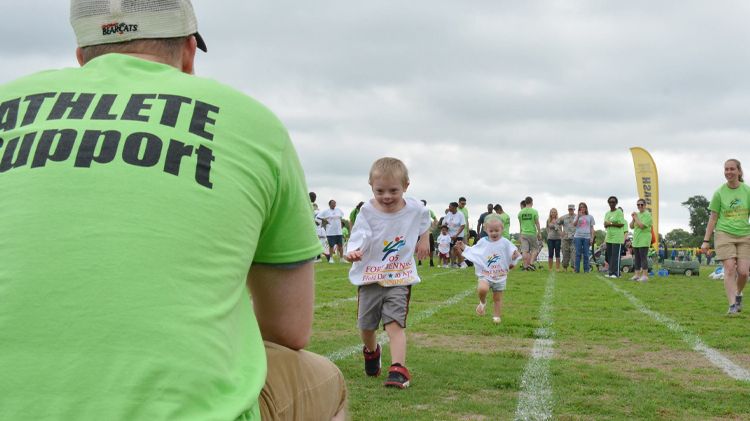- Helping schools understand the challenges military Families face
- Informing parents about local school policies and PCS transitions
- Giving Families information about local schools, graduation requirements, after school programs, youth sponsorship and homeschooling
- Connecting units and schools through partnership initiatives
- Conducting workshops to help parents navigate educational transition and advocate for their children
- Providing an array of resources that benefit military youth and improve school experiences
- Establishing school and community partnerships
- Providing information about colleges and other post-secondary opportunities and preparation materials
- Youth Sponsorship
-
Does your child have 101 questions about your next duty station? Let a youth sponsor answer them!
Youth sponsors connect with children before arrival at a new duty station, provide them with information about their new communities and answer questions from a youth perspective – while being guided by adults in the CYS youth program and the schools.
Once you arrive, a youth sponsor will meet your child and can arrange community and school tours.If you're preparing for a PCS move, contact your SLO today to sign up for a youth sponsor.
- Finding a School
-
Finding a new school and registering your child can be confusing.
We can help.
Our SLOs give you information on local schools so you can find the best fit for you and your family. They can also help you with everything you need to register – and can answer other questions, too. Contact our office and to get more detailed information.
Research-based Characteristics of Quality Schools
Most schools share fundamental characteristics that prepare students for the future. Research shows that the most effective schools are more alike than they are different. Here is some information about what to look for in quality schools:
- Five Key Features of Effective Schools
- Effective Schools Research Base
- What is Effective School Research?
- The United States Department of Education provides detailed information about choosing a school and offers a great number of resources to help you make an informed decision when choosing a school for your child.
Schools (K-12)
- Ft. Moore, GA
- Chattahoochee County, GA
- Muscogee County, GA
- Harris County, GA
- Russell County, AL
- Phenix City, AL
- Lee County, AL
Fort Moore has one middle and four elementary schools. School districts surrounding Fort Moore serve our high school students.
Which school is best? How do I choose?
Elementary and middle school students on post will be assigned to a school near their housing community. High school students on post have a variety of options, including Russell County in Alabama, and in Georgia, Chattahoochee County and nine schools in Muscogee County. There are many private and faith-based schools within a 30-mile radius. To make a well informed decision, visit prospective schools, visit the school website, talk to teachers, students and administrators, and gain an overall sense of the school’s academic, social, and emotional environment. If you do not live on post, your choice of school may determine where you decide to live. Most high schools in Muscogee County offer a magnet program, and potential students may apply (a process that sometimes includes a test and interview) to attend a magnet program outside of their assigned district.
How do I register?
School registration will take place at the school to which you are zoned. Kindergarten students must be at least 5 years old on or before Sept. 1, and first-graders must be at least 6 years old. Students who turn 6 years old after Sept. 2, have successfully completed public kindergarten in another state, and have been certified to attend first grade in that state may be accepted in first grade. For more information, please visit the specific school district.
For schools on post, you will need your current orders to verify active duty status and a lease agreement or memorandum from the Housing Office verifying that you are assigned to Fort Moore housing or will be assigned within 90 days.
On post or off, you may need:
- proof of residency (mortgage, rental agreement, government mail, utility bill, etc.)
- school records and/or previous school’s mailing address
- Social Security Card
- certified copy of birth certificate
- immunization records on Georgia Form 3231
- Eye, Ear, and Dental screening on Georgia Form EED
Do I have to live on post for my student to attend on-post schools?
Yes, only post residents with students in grades PK-8 may attend Fort Moore Schools.
To which school is my high-schooler assigned?
If you live on post, your high school student may attend Spencer High School, Chattahoochee County Middle High School or Russell County High School in Alabama. Transportation is provided to all high schools in Muscogee County and Chattahoochee Middle High School. Your student may wish to attend a magnet program in one of the Muscogee County High Schools. A magnet school is a public school that helps a child focus on an interest or career, such as liberal arts, science, technology, etc. The Muscogee County School District offers nine magnet programs in its high schools:
Why aren’t requirements the same from district to district?
Each local school district is obliged to meet state requirements for learning standards, including standards for students seeking promotion and graduation. These requirements vary from state to state and often put our transitioning students in jeopardy of graduating on time. We hope you will visit the Military Child Education Coalition web page to seek tips on preparing your child for transitioning from school to school. The Department of Defense is also working with the states to ease the burden placed on transitioning families. Visit www.USA4militaryfamilies.dod.mil for more information.
- Home School
-
Home schooling has become mainstream and widely-used. We offer resources and information to help you provide quality home-based education.
Home School Legal Defense Association provides information on home school law, and general support and information about homeschooling.
Homeschool families on post are invited to join us for a weekly meeting. For information, call +1 (706)545-2079.
School Support Services offers homeschool families access to homework help, the technology lab and the gym at the School Age Center from 9am-12pm Tuesdays during the school year. Register today at Parent Central. For more information, call +1(706) 545-3062.
School Support Services works with on-post homeschool families to provide access to homework help and post facilities, when available, during the school year. The School Liaison provides a link between homeschool families and local resources.
Home school families on post are subject to the requirements of the Department of Defense Education Activity (DoDEA) and Georgia or Alabama home schooling regulations. If a family resides off the installation, they are subject to requirements of the state. For homeschooling information for the state of Georgia, go to the Georgia Department of Education website or the Alabama Department of Education website.
Home school students can receive auxiliary services (if available) from on-post schools if they reside on the installation. Auxiliary services may include the use of academic resources such as textbooks, library books, standardized tests, software and internet access through school media centers. Home school students may participate in music, arts and interscholastic activities that occur between schools. Services for home school children living off the installation vary from school to school.
- Special Education Information
-
If you have a child with special needs, we can help you find the resources available in your school district. We can also connect you with your local installation’s Exceptional Family Member Program (EFMP) office.

Contact EFMP for more information
- Additional References & Resources for Special Education
-
Highly mobile children are entitled to an expedited process, including: a) evaluations in 30 days instead of 60 days, b) removed delays due to school district schedules for Families moving during incomplete screenings, c) continued Extended School Year for students moving in the summer. The United State Department of Education, Office of Special Education and Rehabilitative Services outlines these requirements for State Directors of Special Education.
The Center for Parent Information and Resources offers parent education, acronyms, tools, webinars and a directory of local Parent and Information Training Centers to appropriately advocate for their children, proactively supporting personal accountability. Funded by OSEP.
Military OneSource has a range of resources in caring for a family member with special needs: education, health care, legal, financial, points of contact (EFMP, School Liaisons, etc.)
Military Community & Family Policy-Office of Special Needs provides directory of age-specific resources and States at a Glance for state education special education resources and parent resources.
DirectSTEP provides no-cost, Army sponsored online training for educators and parents on a host of special education topics such as understanding federal requirements, best practices for behavior management, IDEA eligibility, IEPs and more. Through the eCourses parents and educators learn how to apply education laws in order to obtain positive outcomes associated with critical education issues. Access the course listing and registration page through the links below.
- Transition Support
-
We understand that military transitions for children include much more than school plans and enrollment. We have a number of resources to help make your move as easy as possible for the kids, including:
Military Kids Connect provides online age-appropriate resources to help parents, teachers and children cope with the unique challenges of military life.
The Interstate Compact on Educational Opportunity for Military Children (MIC3) addresses key transition issues military Families experience, including enrollment, placement, attendance, eligibility and graduation. All 50 states have signed the compact and are in varying stages of implementation and/or compliance. The compact applies to children of Active Duty service members, National Guard and Reserve members on active duty orders and members or veterans who are medically discharged or retired within past year.
If you feel that you have an issue that the Compact can help address talk with your SLO. The SLO is able to assist by connecting with both the sending and receiving school to assist in resolving the issue. If it is not possible to resolve the issue locally, the SLO will help you work with the state commission, and if needed, the national office.
- Post - Secondary Support
-
Our support doesn’t end with elementary education. If you have children preparing for academic life after high school, we can help you find information about testing opportunities, scholarships and military-specific resources that can help you plan.
The US Department of Veteran’s Affairs provides information about Military-Specific and Government Academic Support G.I. Bill
The Transferability of Educational Benefits for the Post 9/11 GI Bill are very specific. The Defense Manpower Data Center, through MilConnect will guide you through the transfer process and your eligibility to do so. Speak with an Education Counselor prior to making this election in order to ensure you understand the benefit.
In-State Tuition Programs for Military: Service-members, active duty for a period of more than 30 days and their dependents are eligible to receive in-state tuition at many public colleges and universities in the state where they reside or are permanently stationed. An enrolled dependent may pay in-state tuition as long as he or she remains continuously enrolled at the institution, even if the service-member is reassigned outside of the state. Regulations outlined in the Higher Education Opportunity Act, 2008 (P.L 110 - 135) and the Higher Education Act of 1965 (pdf) apply.
- Resources
-
Here are some additional web resources to assist you with your child’s education:
Academic Resources:
Tutor.com for U.S. Military Families makes live tutors available online 24/7 to help with more than 40 core subjects and standardized test preparation.
Homework Support: Army Child Youth & School Services provides Homework Labs in before/after school programs for elementary students at the School Age Center, and for middle and high school students at the Youth Center.
A personalized learning resource for all ages Khan Academy offers practice exercises, instructional videos, and a personalized learning dashboard that empower learners to study at their own pace in and outside of the classroom. We tackle math, science, computer programming, history, art history, economics, SAT and more.
Support/Resilience Resources:
School Support Services include information about other programs you can use for support and resilience-related issues.
Military Family Life Counselors (MFLCs) are available to meet in-person on or off the military installation. The free nonmedical sessions are anonymous and may occur in individual, couple, family or group settings. Child Behavioral Specialists are located on the installation in Child, Youth and School Services programs, and in highly impacted schools located on and off the installation.
Military OneSource has access to free nonmedical counseling that’s anonymous and available online, on the phone or in person. Twelve free sessions may occur in individual, couple, family or group settings.
Ready and Resilient Workshops for youth and educators are offered through the SLO and Youth Center programs. These workshops provide educators and students with the same tools Soldiers receive through their Ready and Resilient training. As Master Resilience Trainers SLOs strive to develop a common language around resilience for educators, youth and their parents.
For information on how to attend a class contact your local SLO.
College and Career Readiness Resources:
College and career readiness includes the content knowledge, skills and habits that students must have to be successful in postsecondary education. It also includes training that leads to a sustaining career. A student who is ready for college and career can qualify for and succeed in entry-level, credit-bearing college courses without needing remedial or developmental coursework. These links have tools that will help you plan for your child’s college and career readiness:
Army Educational Outreach Program (AEOP) provides STEM opportunities for military connected youth. The website provides information about AEOP programs available to youth, scholarship opportunities, news, and ways to get involved.
Military.com Scholarship Finder Military.com provides a search engine to help you find money for your child’s higher education needs. Search over 1000 scholarships intended for military youth. They also have a Military Scholarship Handbook.
School Support Services Scholarship Database Listing of crowd sourced scholarships for military connected youth. Scholarships are listed in alphabetical order and provide information on deadlines and qualifications.
Financial Aid
Provides a description of federal student aid programs from the U.S. Dept. of Education and how to apply for them.
Free Application for Federal Student Aid (FAFSA). Apply for federally funded financial assistance for education beyond high school.
Get Ready for College - College Planning, Financial Aid
Schools (Colleges & Universities)
- Garrison Commander's Superintendents Roundtable
-
The installations Garrison Commander hosts an annual gathering with the superintendents of local school districts in a roundtable meeting facilitated by the School Liaison Officers. The purpose of the meeting is to discuss critical and trending issues in local school districts that impact military-connected students. The goal is to develop viable and sustainable partnerships that focus on problem identification, process improvement and solutions.
Meeting Minutes
Review the meeting minutes from the November 2, 2021 meeting.
- Frequently Asked Questions
-
What is a Unique Military Child Identifier? Numerous states have enacted a voluntary report-only self-identification of military children within their public school systems. This data collection would allow monitoring of critical elements such as academic progress and proficiency, special and advanced program participation, mobility and dropout rates. Requirements and method of collection vary from state to state.
Impact Aid
Many local school districts across the United States include within their boundaries parcels of land that are owned by the Federal Government. They must provide a quality education to the children living on the Indian and other Federal lands while sometimes operating with less local revenue than is available to other school districts, because the Federal property is exempt from local property taxes.
Congress has provided financial assistance to these local school districts through the Impact Aid Program. Each year Military members and Federal employees complete a Survey Form. The amount of Impact Aid – or federal assistance –received is determined by the number of eligible parents/guardians who complete the survey form. It partially compensates school districts affected by federal activity for local tax losses resulting from tax-free federal installations.
Impact Aid Fact Sheet (we will provide a hand out to link to)
Impact Aid Website
At overseas/international locations where there is not a Department of Defense Education Activity (DoDEA) school, NDSP supports a variety of options for your children, ranging from public or private schools to homeschool programs. NDSP has a team of education specialists who are available to provide transition and educational support and coordination for all students, including those with special needs. Sponsors are encouraged contact the NDSP as soon as possible for specific school information.
Phone Number +1 (571)372-5863 or +1 (571)372-1897

School Support Services provides Army school-aged youth with educational opportunities, resources and information necessary to achieve academic success. A branch of Child & Youth Services (CYS), School Support Services features School Liaison Officers (SLOs), who help schools, installations and Families work together for student achievement.
SLOs are your best support in the area of education, schools and military transitions. SLOs are knowledgeable in current education news and policies. They act as the conduit between the school community – including local public school districts, private schools and home school Families – and the installation.
2024/2025 School Calendar: Schools include DoDEA, Muscogee, Harris, Chattco, Phenix City, Russell and Lee Counties.
How can your School Liaison help?













